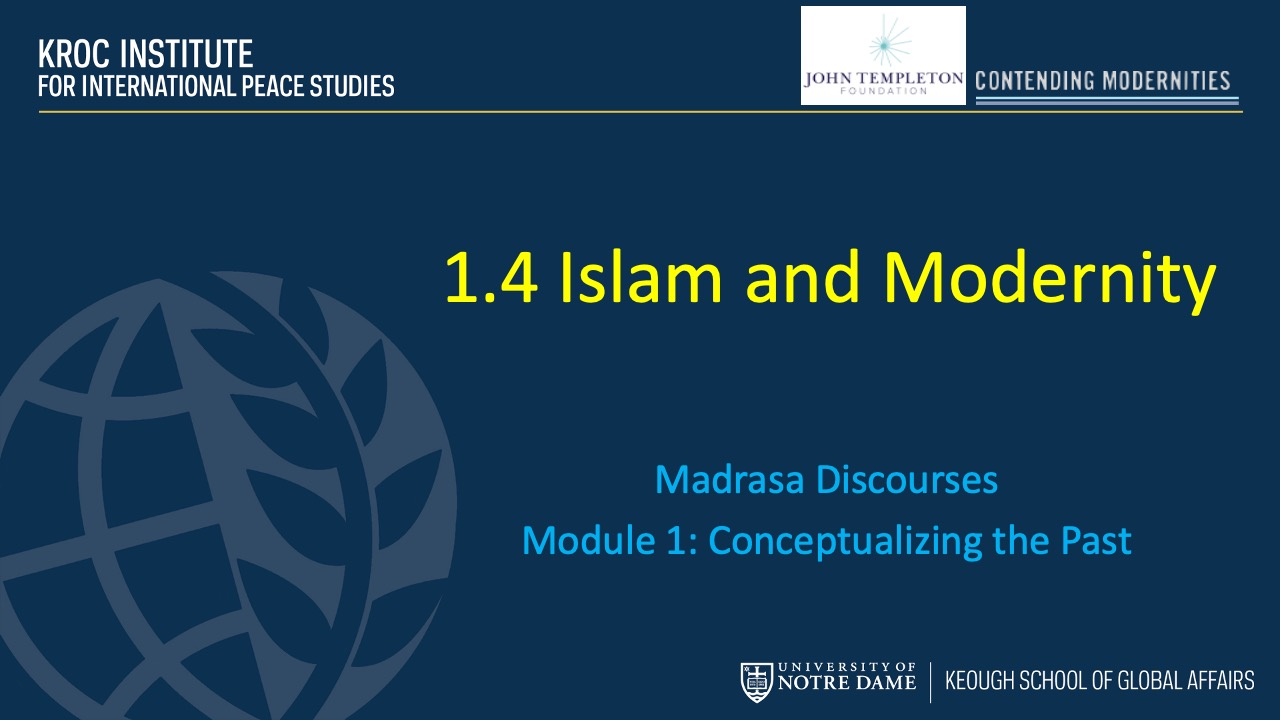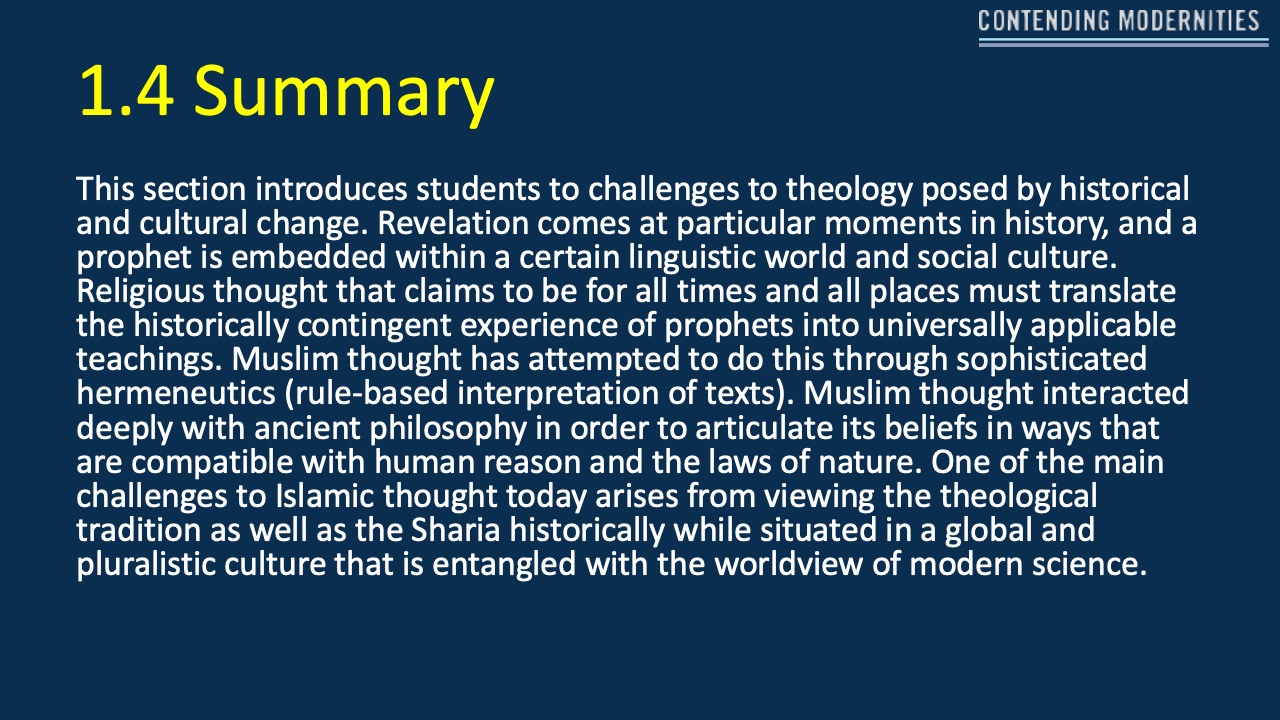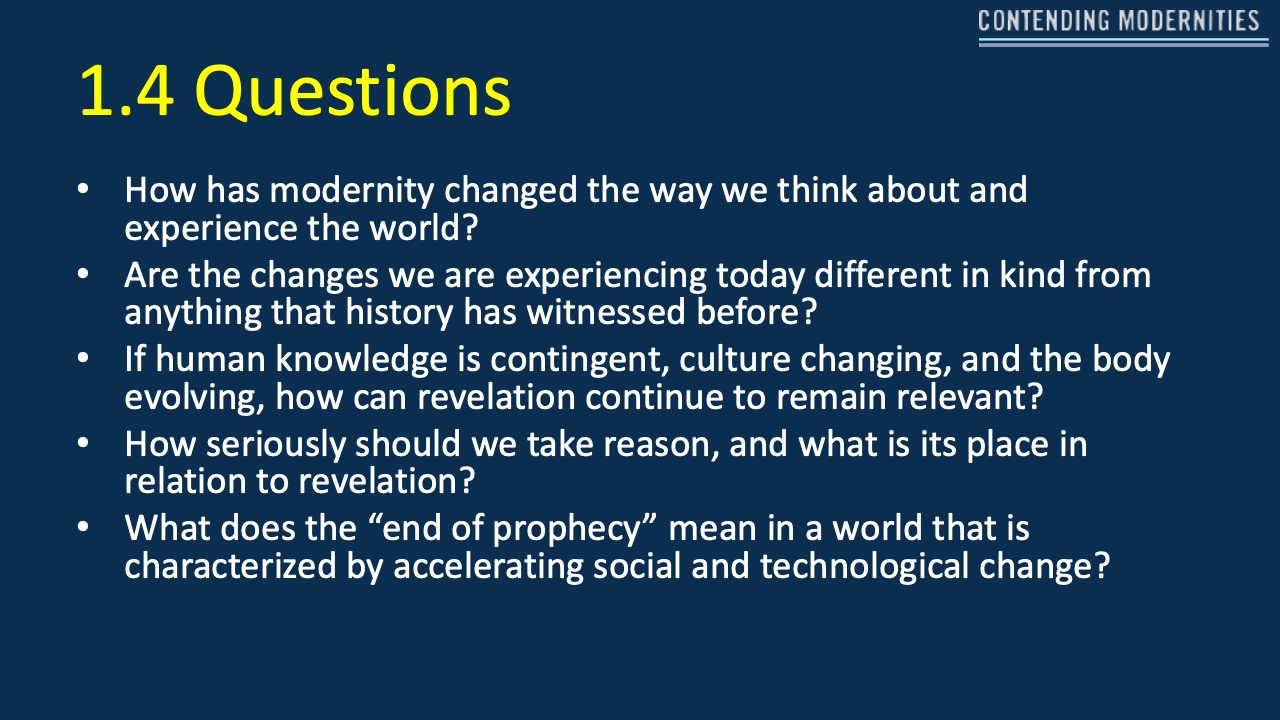What is modernity? How is this period in history different from the past, and what implications does this have for Islamic tradition?
The section introduces students to an account of how the modern world has come into existence, as well as a deeper dive into the meaning of “modernity.” It then focuses on the responses of Islamic theologians to the rapid changes that are characteristic of this new world. How might Islamic law be utilized to help Muslims, and all people, cope with these changes?
Key Terms:
Thumbnail: ‘Moroccan Light’, Morocco, Marrakech, Medina. Photo Credit: Chris Ford, 2014. CC BY-NC 2.0.
Learning Materials:
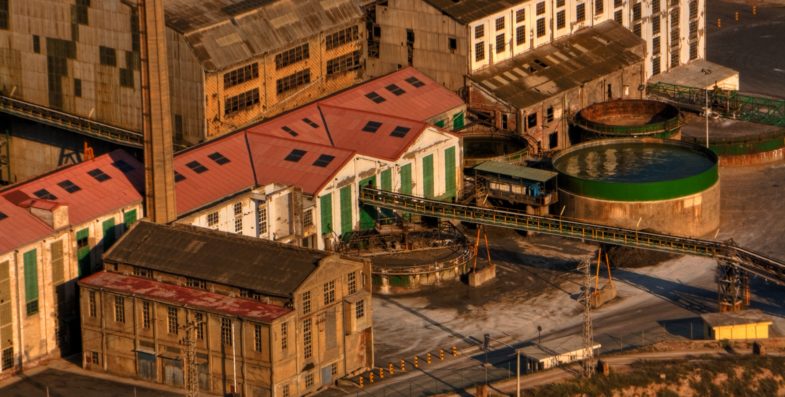
1.4.1 Max Weber and Modernity
Was modernity driven by shifts in technology, economics, or politics? (Josep Puighermanal/"Racó industrial. Cardona")
Read More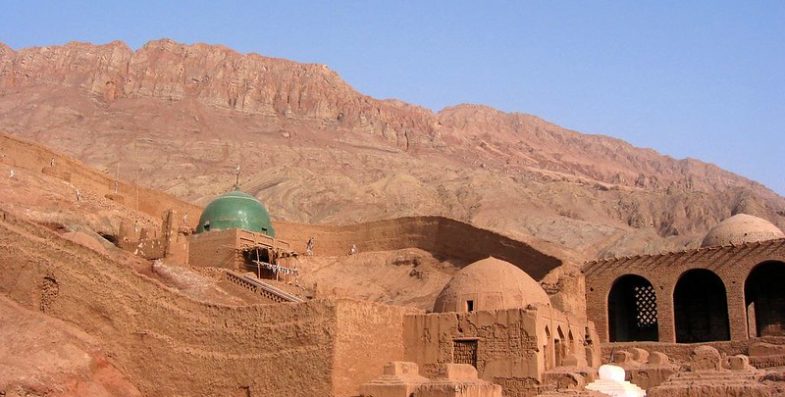
1.4.2 Modernity and Islam
How should we think about indigenous reform efforts that mirror Western modernist critiques of religion? (Roy Berman/"Turban holy site")
Read More
1.4.3 Shaykh Ali Gomaa: Islam in Modernity
What is the process through which Islamic law has been interpreted and implemented? (Amaury Laporte/"Infinity Mirrored Room")
Read More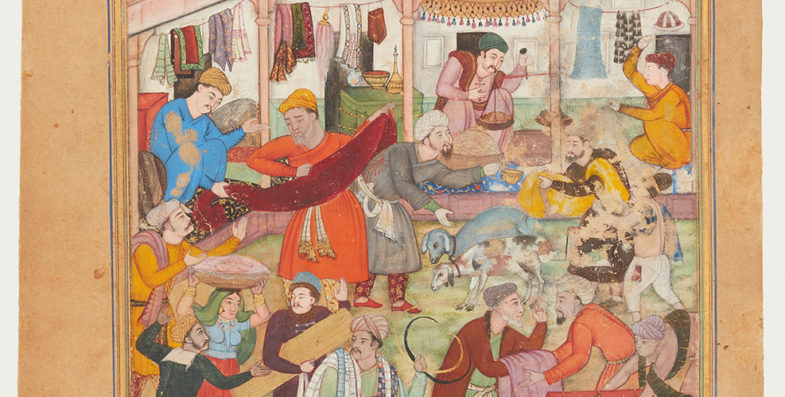
1.4.4 The Shari’a: A Multifaceted Venture
What myths frame the dominant contemporary understanding of shari'a? (Nasir al-Din Tusi/"Market Square")
Read More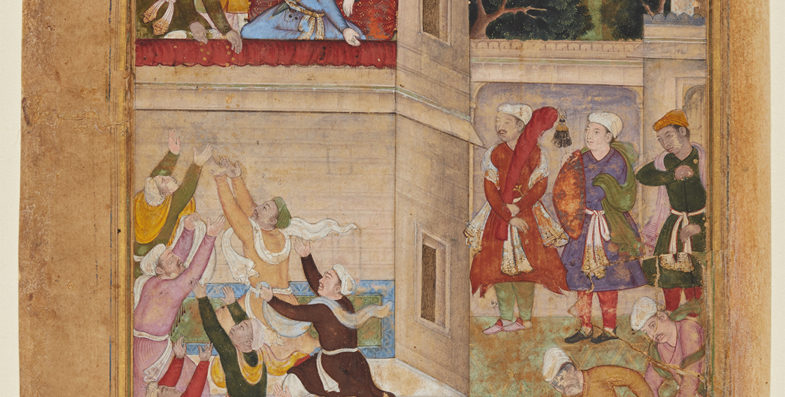
1.4.5 Recovering the Ethical: Practices, Politics, Tradition
'Islamic law' could effectively be described as a vibrant tradition of translating norms into lived societies. (Nasir al-Din Tusi/"Distributing Riches")
Read More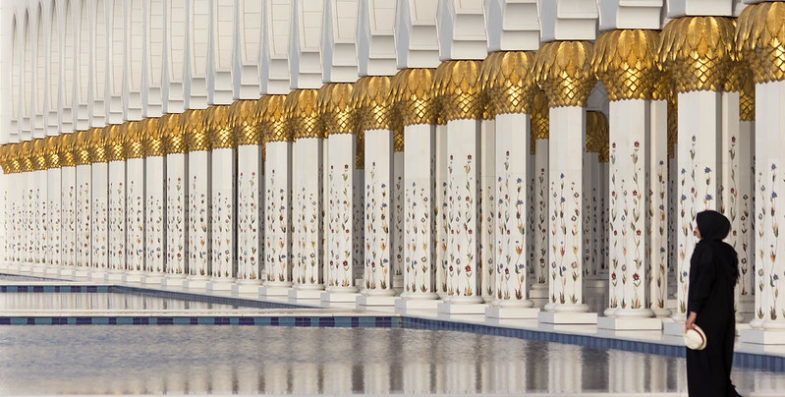
1.4.6 Shariah in Today’s World
Renewal and adaptation are necessary to correct practices out of alignment in a changing world. (Andrew Moore/"Sheikh Zayed Grand Mosque: Colonade III")
Read More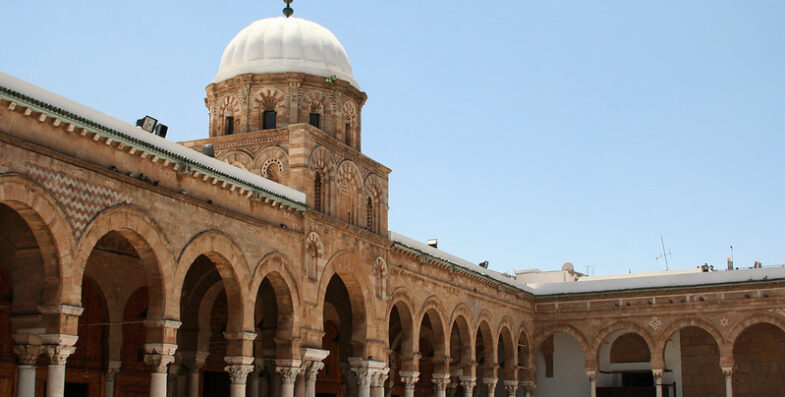
1.4.7: Contemporary Madrasa Reform from Within
How can we integrate critical and scientific and rational thought with traditional Islamic sciences? (Larry Koester/"Zaytuna Mosque")
Read More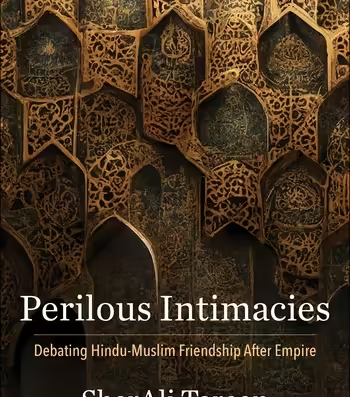
1.4.8: Debating Interreligious Friendship in South Asia
In the context of British colonialism, how did South Asian Muslim scholars grapple with the possibilities and dangers of Hindu-Muslim friendship?
Read More
1.4.9 Islamic Vicegerency
What is the role of humanity in the Islamic worldview? (Riza `Abbasi/"Hunters at a Stream, ca. 1625")
Read More

